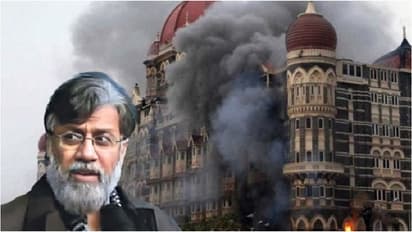Mumbai 26/11 accused Tahawwur Rana moves US Supreme Court, cites double jeopardy against extradition to India

Synopsis
Tahawwur Rana, a Canadian-Pakistani national, faces extradition to India for his alleged role in the 2008 Mumbai terrorist attacks, with his petition to the US Supreme Court being his last resort to avoid extradition.
Washington: Tahawwur Rana, a Canadian national of Pakistani origin, is facing extradition to India for his alleged role in the 2008 Mumbai terrorist attacks. Rana's attorney, Joshua L. Dratel, has petitioned the US Supreme Court to review the lower court's decision, citing the principle of double jeopardy.
“The (Supreme) Court should grant the writ. On the merits, it should hold that the term "offence" in the double jeopardy provision of the United States-India extradition treaty (and many other similar treaties) refers to the conduct underlying the charges in the two countries, rather than the elements of the crimes the respective countries have charged," Dratel argued.
Rana had previously lost his legal battle in lower courts, including the US Court of Appeals for the Ninth Circuit in San Francisco. On November 13, he filed a "petition for a writ of certiorari" with the US Supreme Court, seeking to challenge the decision.
The US Solicitor General, Elizabeth B. Prelogar, has urged the Supreme Court to reject Rana's petition, arguing that the charges India has brought against him are not identical to those on which he was acquitted in the US. However, on December 23, Rana’s lawyer, Joshua L. Dratel, responded by challenging the government’s stance and requesting that the Supreme Court accept the petition.
Rana is currently incarcerated in Los Angeles and faces charges related to his involvement in the 2008 Mumbai attacks. He is known to have collaborated with Pakistani-American terrorist David Coleman Headley, one of the primary conspirators of the attacks. Rana was tried and acquitted in federal court in Chicago on charges related to the attacks, but India now seeks his extradition for trial on charges based on the same conduct.
In his petition to the Supreme Court, Rana argues that since he was acquitted in the Chicago case, India’s request for extradition would violate the double jeopardy principle. However, Prelogar, representing the US government, disagrees. She stated that not all of the conduct on which India seeks extradition was covered by the previous US prosecution. Specifically, Prelogar cited charges related to forgery in India, which were not part of the charges in the US.
Prelogar further noted that the jury's verdict in the US trial, which involved conspiracy charges, was complex and did not necessarily mean that Rana was acquitted of all the specific conduct involved in India’s charges.
Rana's petition is his last legal recourse to avoid extradition to India, where he faces charges related to the Mumbai attacks, which killed 166 people, including six Americans. The US Supreme Court has scheduled a conference on the matter for January 17.